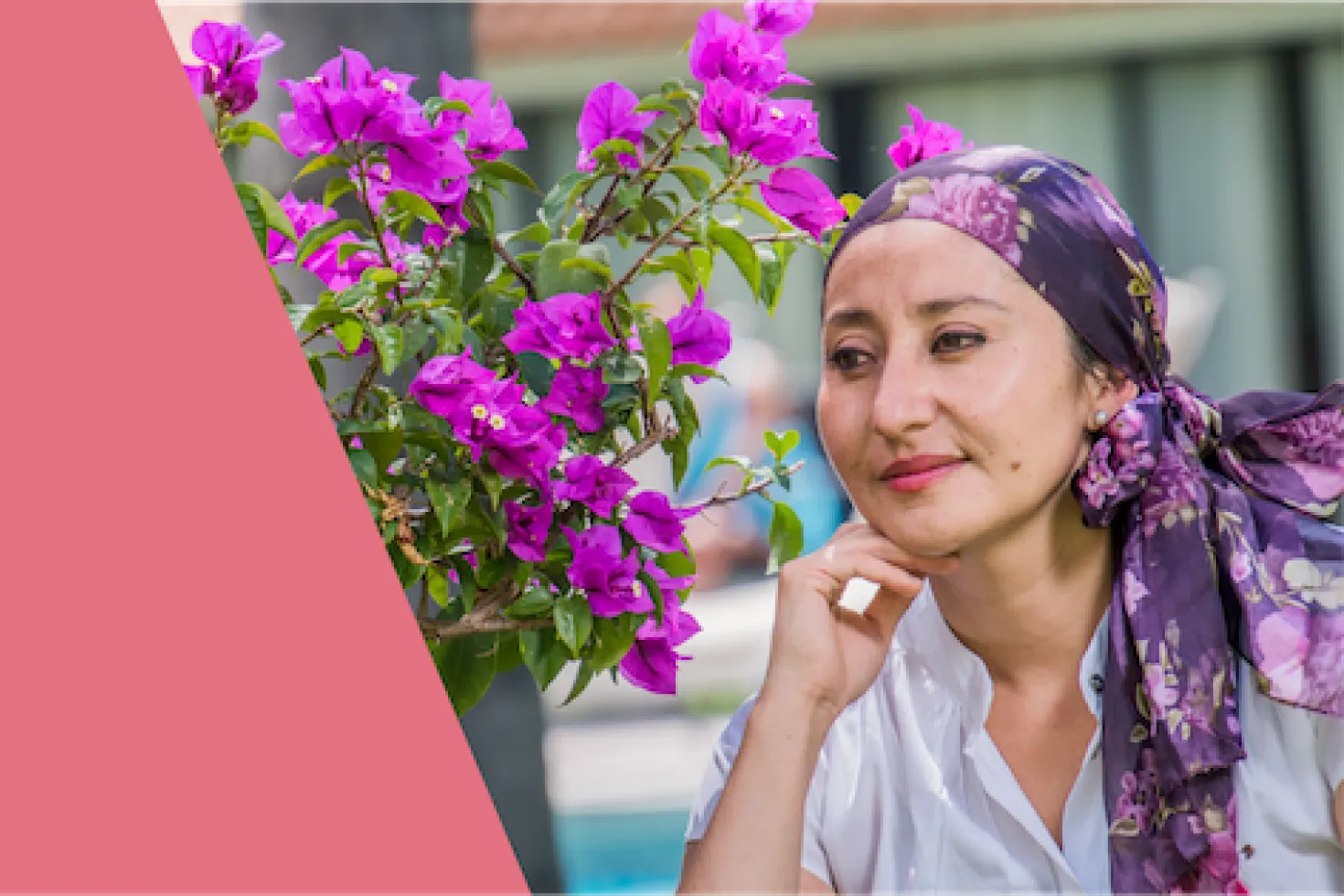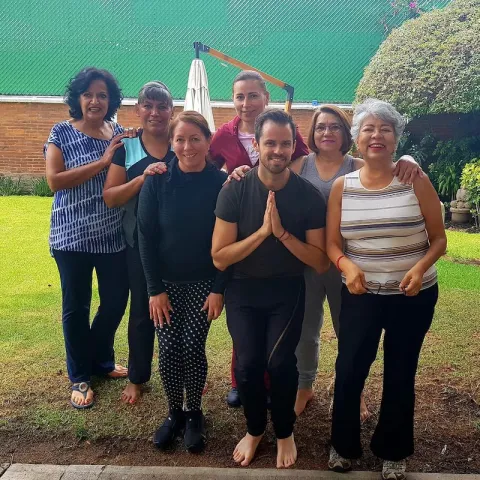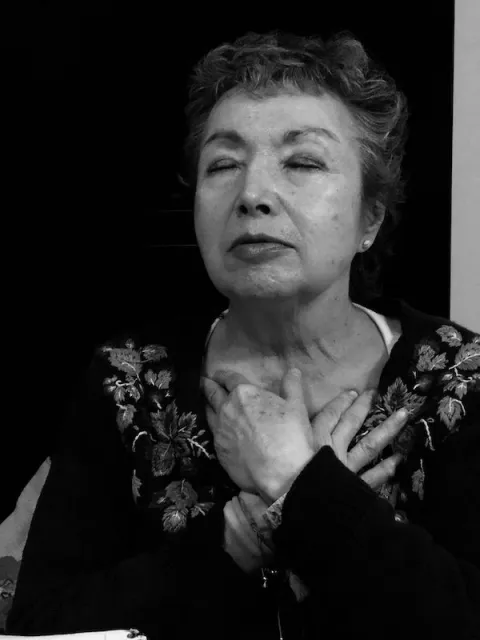Metastatic component for young cancer patients in Mexico

Context

In Mexico, metastatic breast cancer (MBC) represents a major burden amongst the young population where 15% of breast cancer patients under 40 are diagnosed with an advanced stage.[1] Young women with MBC are recognized to be vulnerable to extra emotional distress and psychosocial issues, needing special supportive interventions. To support young MBC patients, their caregivers and their children in coping with the disease, Alianza Mexicana por el Cáncer (MILC) has developed a supportive model of care including integrative oncology techniques as well as psychoeducational sessions.
MILC’s mission is to transform the current landscape of breast cancer in Mexico through actions that eliminate barriers to early diagnosis and timely treatment as well as ensure comprehensive care of patients. In 2017, MILC won a SPARC MBC Challenge grant to tailor one of their flagship programmes, the “Joven & Fuerte” [Young & Strong] programme, to MBC patients’ needs. “Joven & Fuerte” is a unique programme in Latin America that delivers tailored support to the needs of young women with breast cancer in areas such as psychology, fertility, body image and genetics.[2]
Project description

Before MILC entered the SPARC programme they had already supported 320 breast cancer patients from the National Cancer Institute of Mexico in Mexico City, TecSalud at Monterrey, and other satellite sites through the “Joven & Fuerte” programme. When they realised that 15% of these patients were diagnosed with MBC, they designed a new component, the supportive model of care, that would target these patients.[3] This model was based on two interventions: specific patient groups and integrative oncology techniques.
The support groups comprise weekly sessions as well as toll-free telephone support sessions which provide access to patients with transportation restrictions. The integrative oncology techniques include occupational therapy, expressive creative techniques, mind-body interventions and acupuncture. As for the psychoeducational component, MILC is working on the design of a model to improve patients´ comprehension regarding their disease (prognosis and treatment options) so they can participate more actively in the conversations with their physicians and ultimately seek for complementary services to improve their quality of life.

Impact
In the first year since the initiation of the SPARC project, over 150 MBC patients were provided with psychological support and integrative oncology services. Each element of the intervention, be it modality of delivery or treatment Interventions, was carefully evaluated through acceptability and quality of life questionnaires. MILC identified that the primary barrier patients with advanced breast cancer were encountering was a lack of knowledge and understanding about their stage diagnosis (almost half of MBC patients entering the programme were not aware that MBC is incurable).[4]

Another finding was that patients do not have sufficient information to make important decisions throughout the evolution of their disease, which, in turn, hinders their ability to have effective conversations with their doctors about treatment options (40% of patients indicated that it was difficult for them to have a conversation about treatment options).
Satisfaction rates with the model were high as illustrated by one participant who said,
"I am fascinated with the mind-body workshop. It helped me a lot to relax, I now sleep better, I have more elasticity, and the teacher was fabulous. I have learned a lot. It was a wonderful workshop and I was delighted with the results. Thank you very much."
Through the development, testing and validation of this model, MILC is generating guidelines that will allow it to be reproduced in other cancer centres. Their hope is that doing so will encourage centres throughout Mexico to promote the empowerment of young MBC patients.
More
- Organisation's website: The Alianza Mexicana por el Cáncer (MILC) (in Spanish)
- Project webpage: Joven & Fuerte (in Spanish)
- Patient Manual: "Juntas contra el cáncer de mama" [Together against breast cancer] (in Spanish)
- Supportive care model: "Joven & Fuerte - Metastatic Model"
References
[1] Villarreal-Garza C, Mohar A, Bargallo-Rocha JE, et al. Molecular Subtypes and Prognosis in Young Mexican Women With Breast Cancer. Clin Breast Cancer. 2017. doi:10.1016/j.clbc.2016.11.007.
[2] Ibid
[3] Ibid
[4] Villarreal-Garza C, Foseca A, Pineda C, et al. Abstract 1090: Gaps in metastatic breast cancer patient knowledge and understanding in Mexico. 2019. doi: 10.1200/JCO.2019.37.15_suppl.1090. ASCO.
(Information from the project description and context is compiled from the SPARC reports)
Last update
Friday 03 February 2023